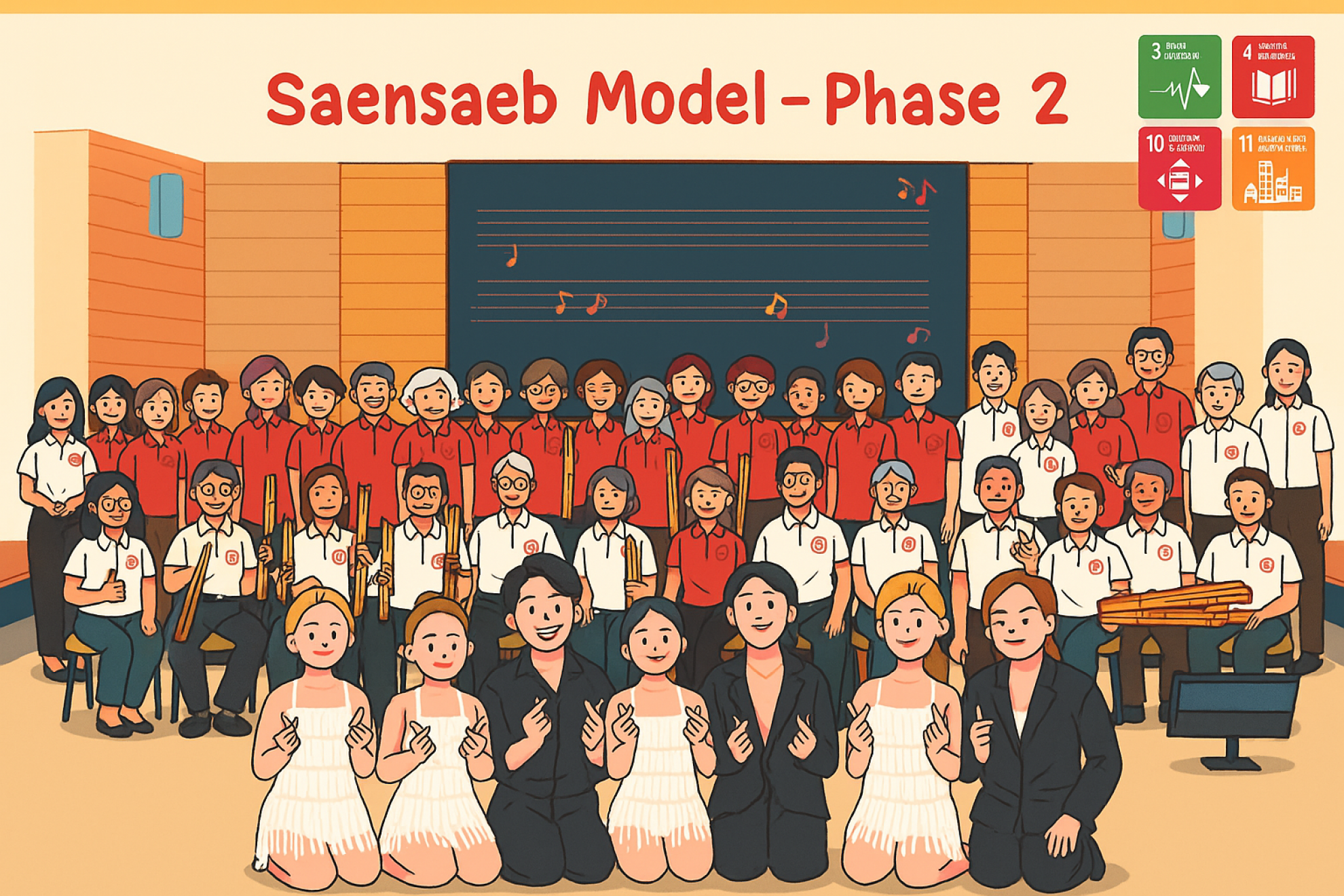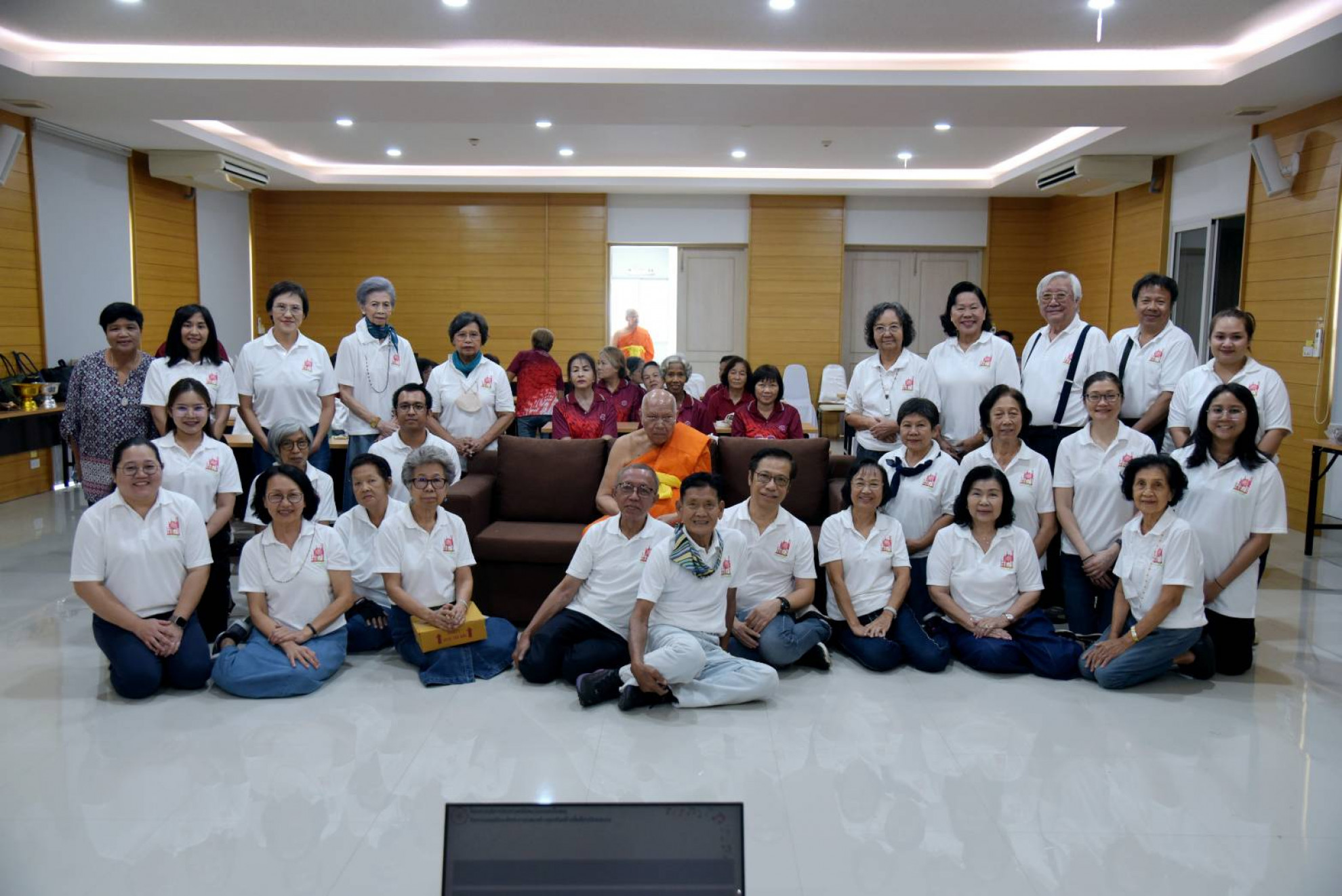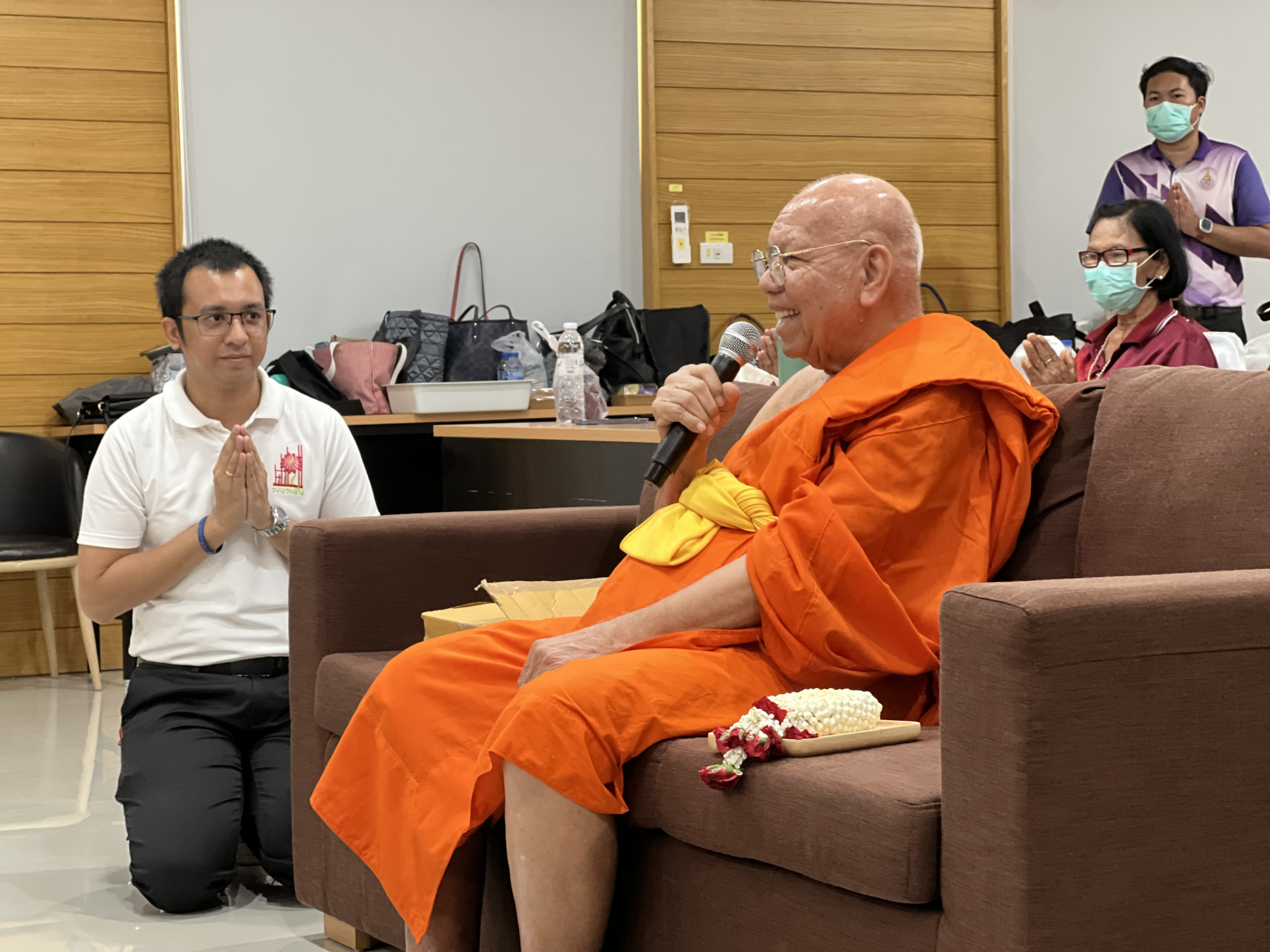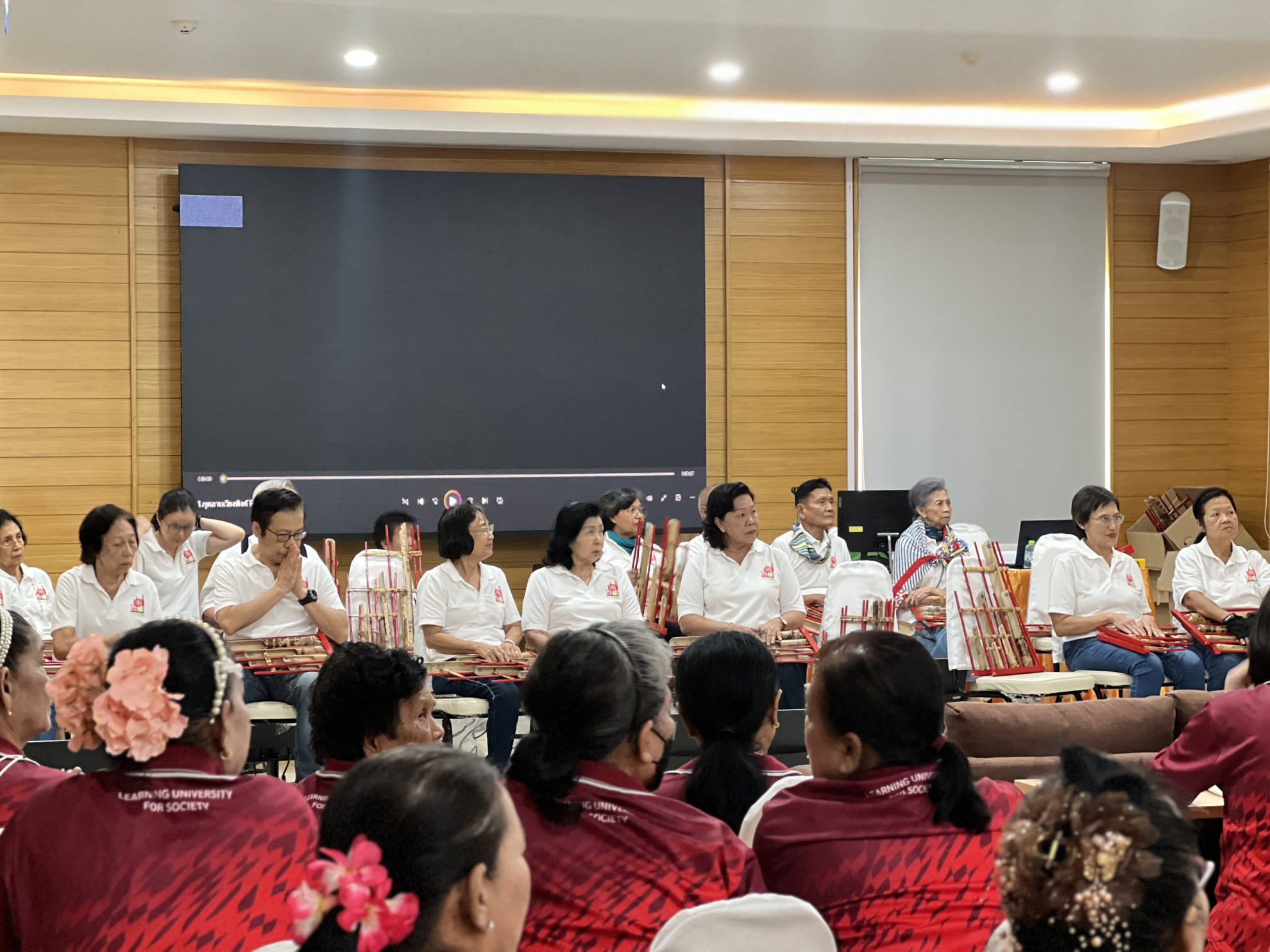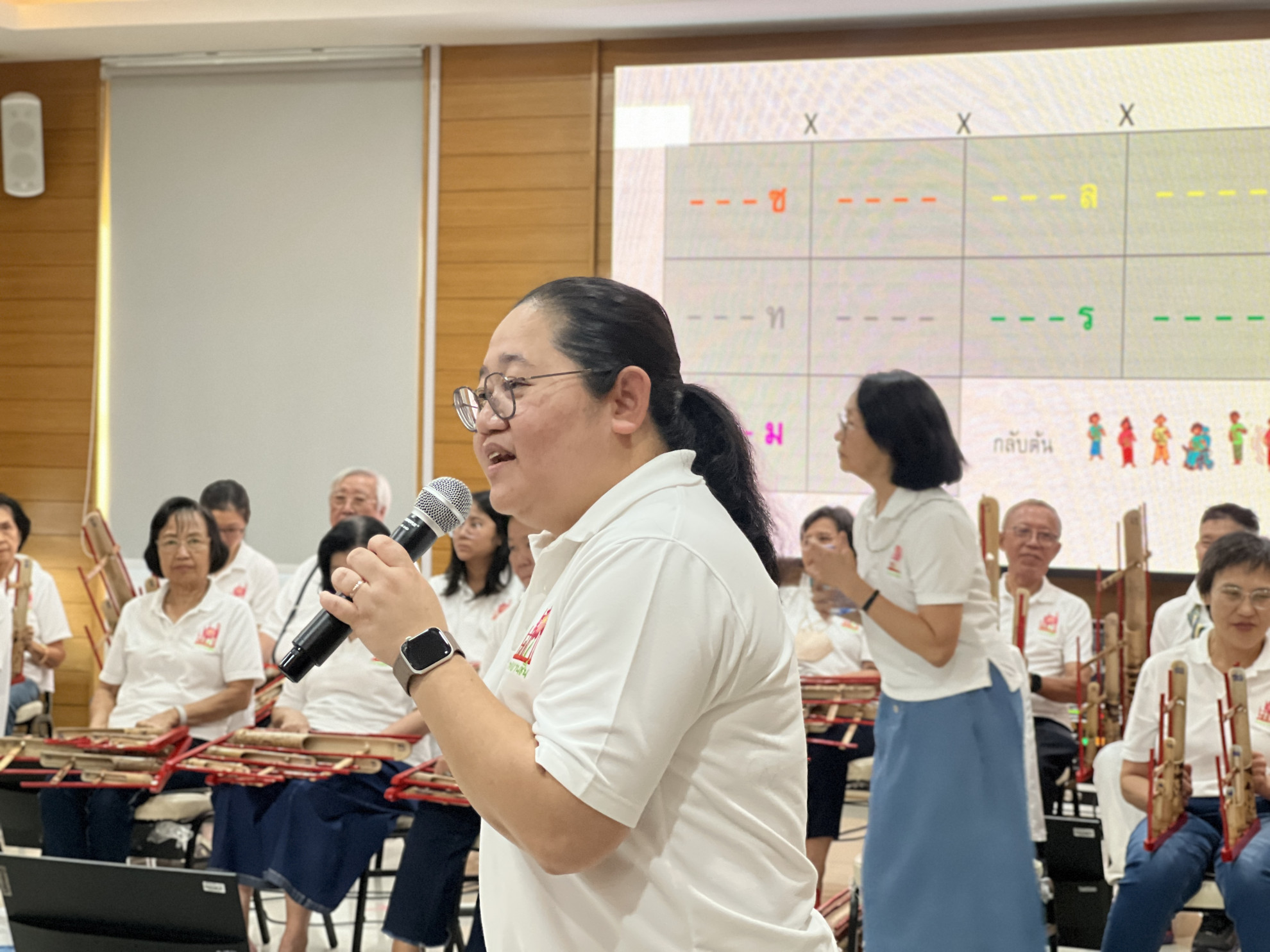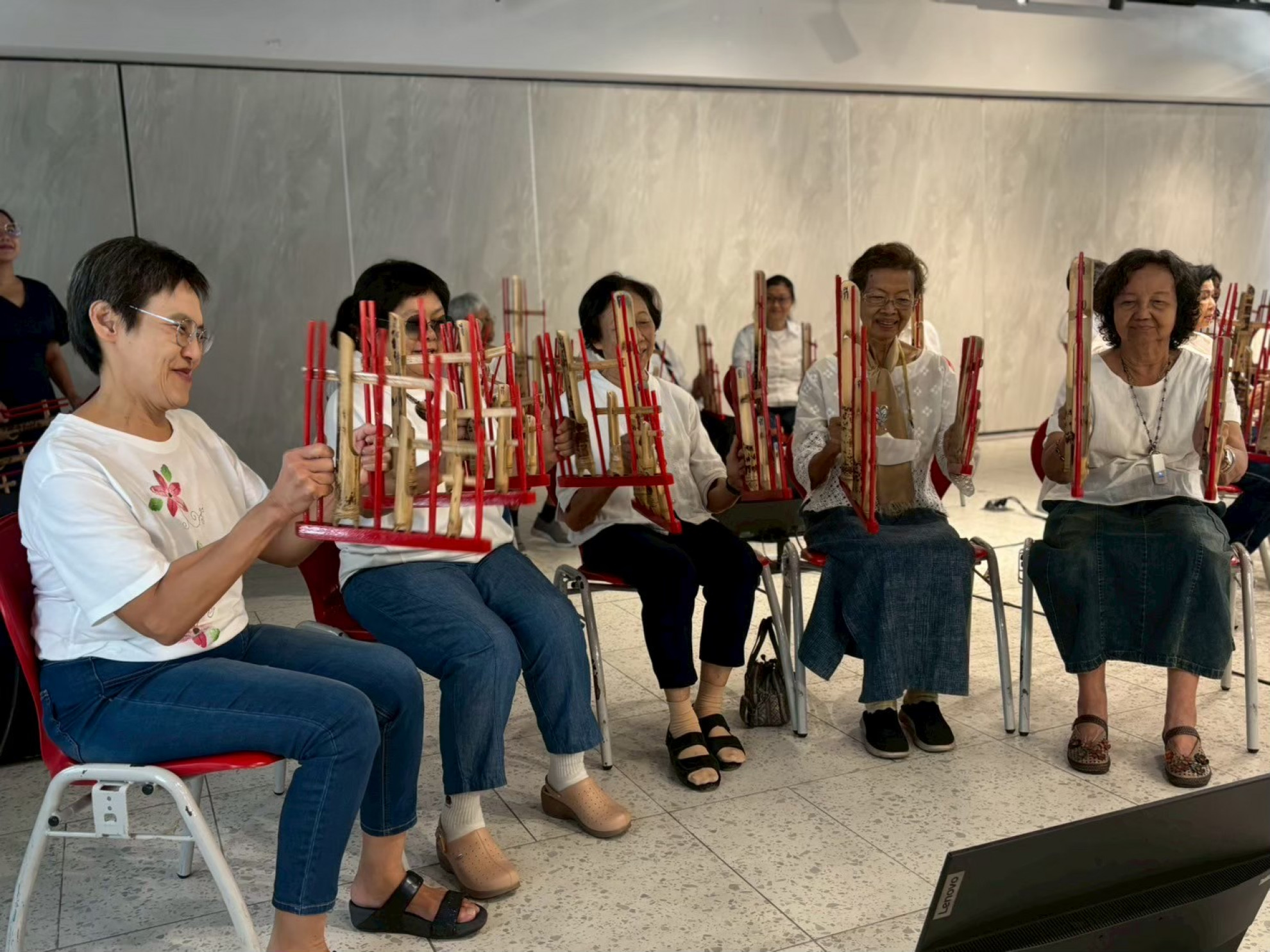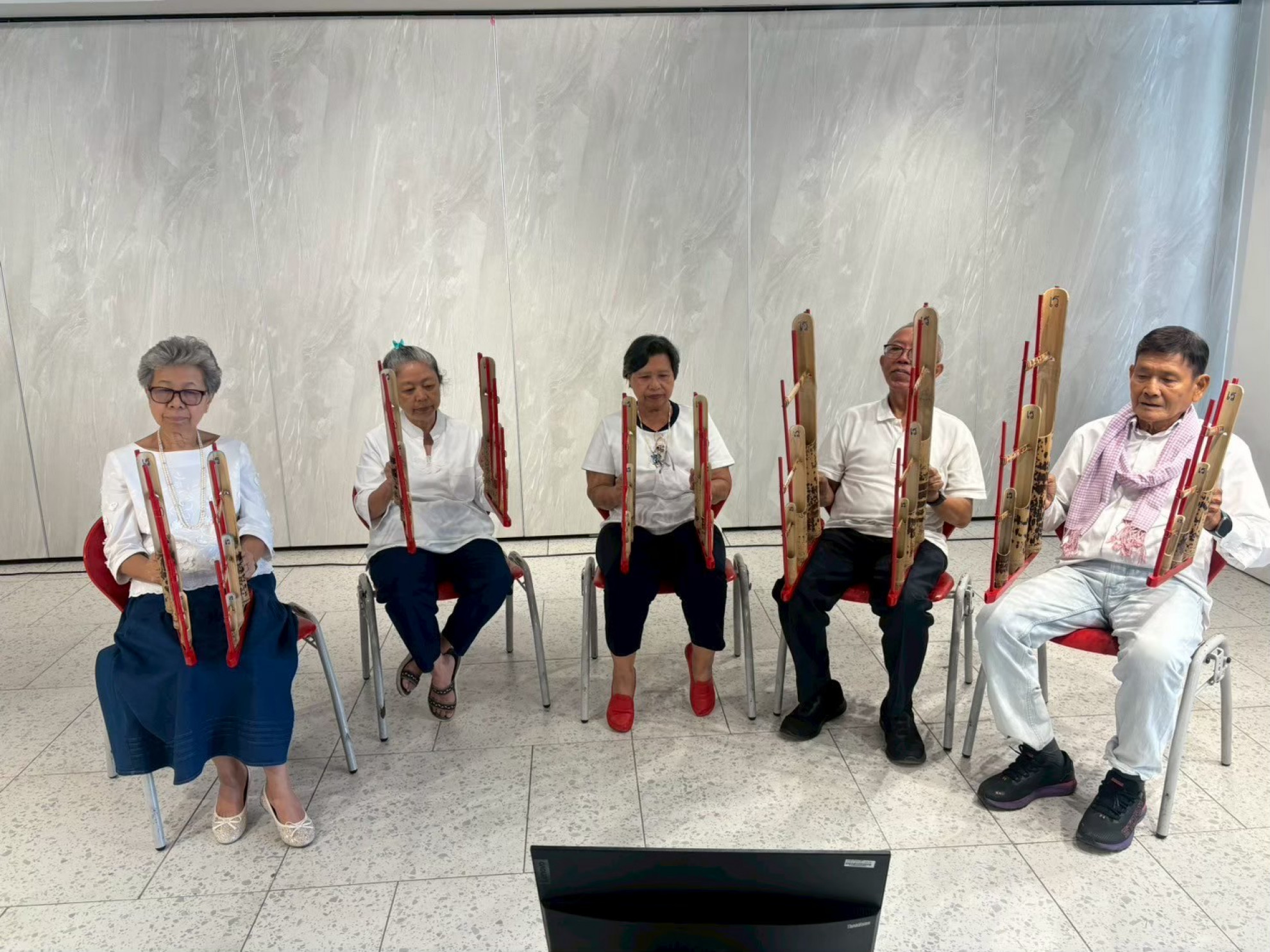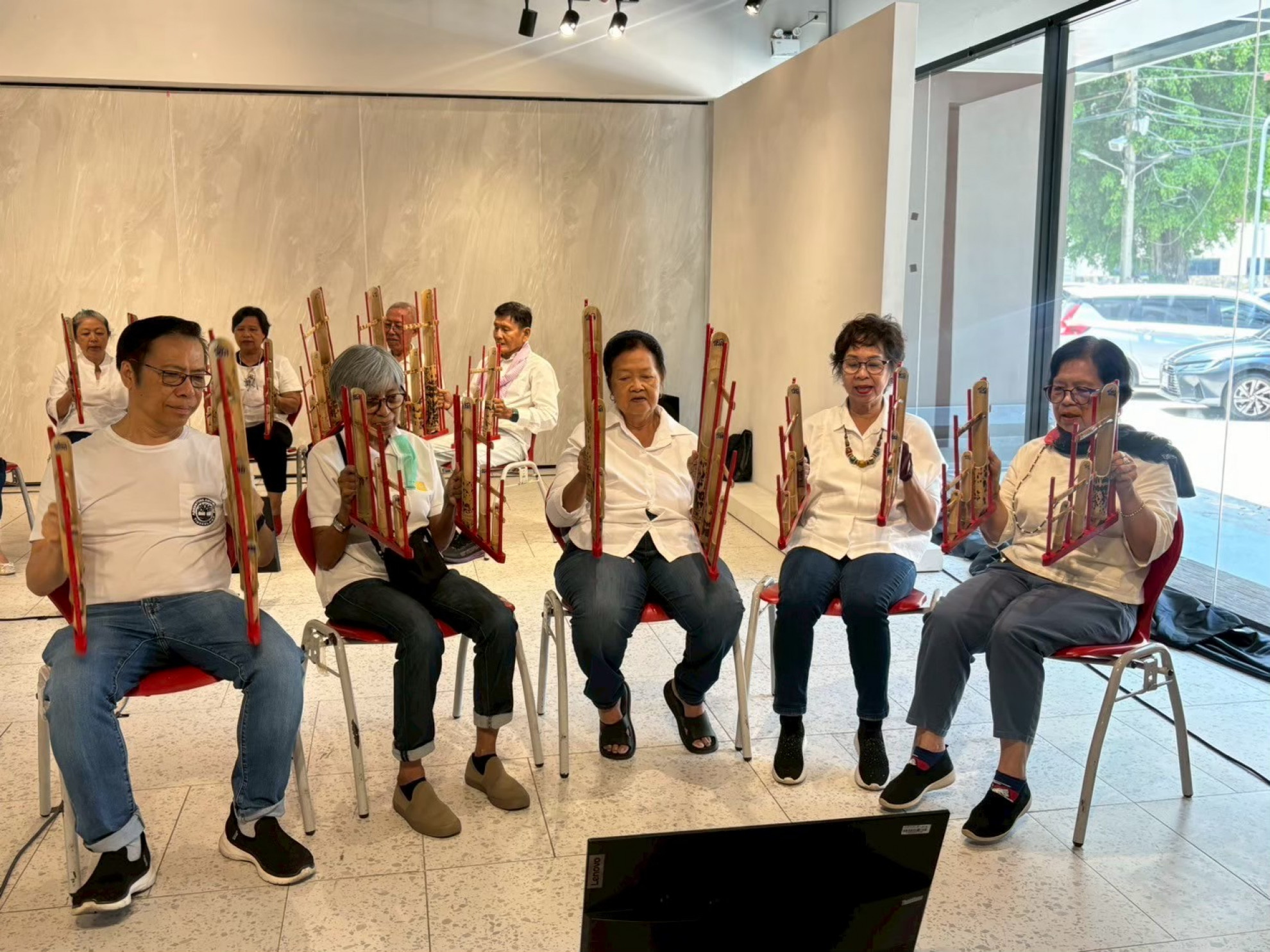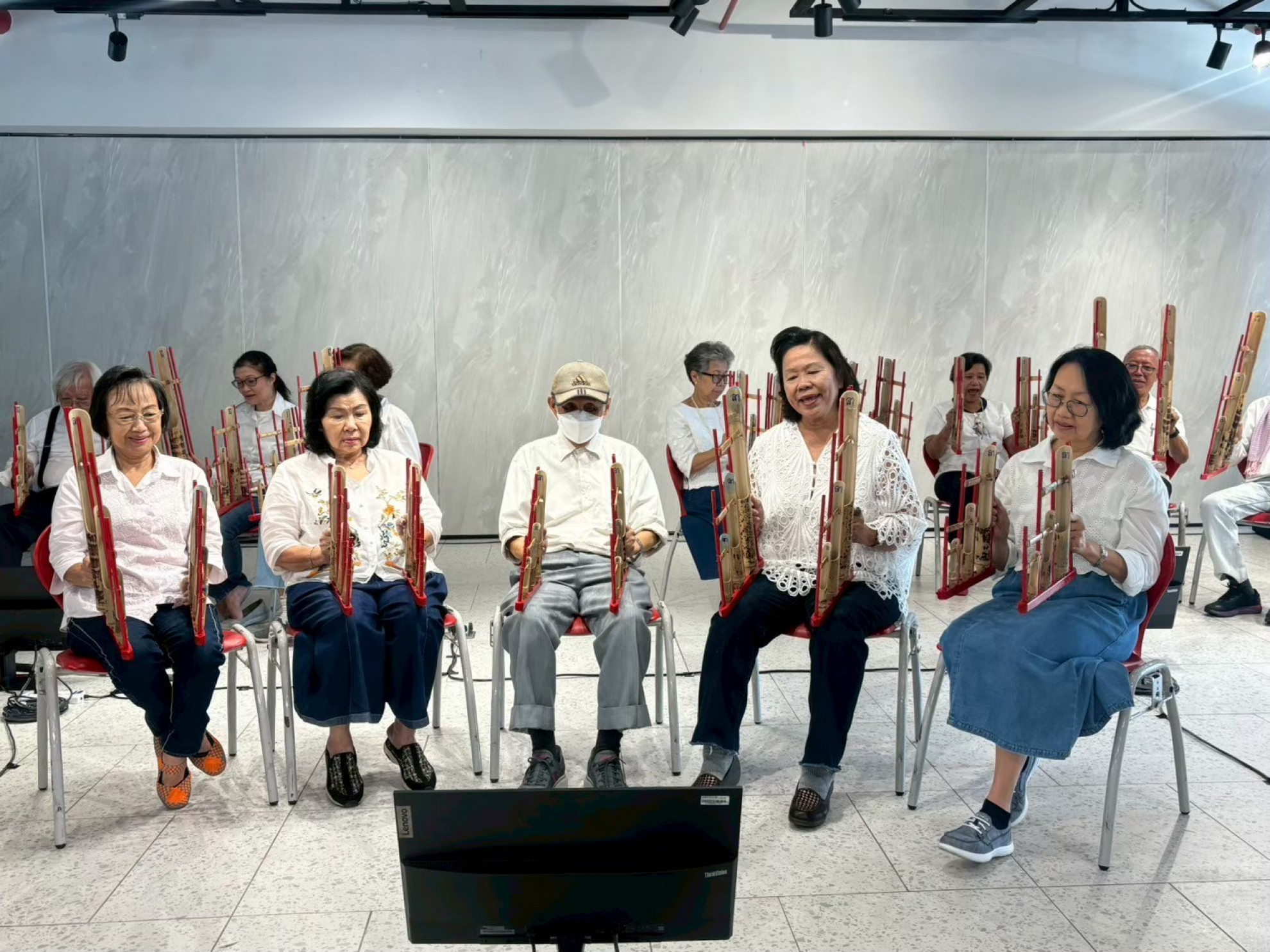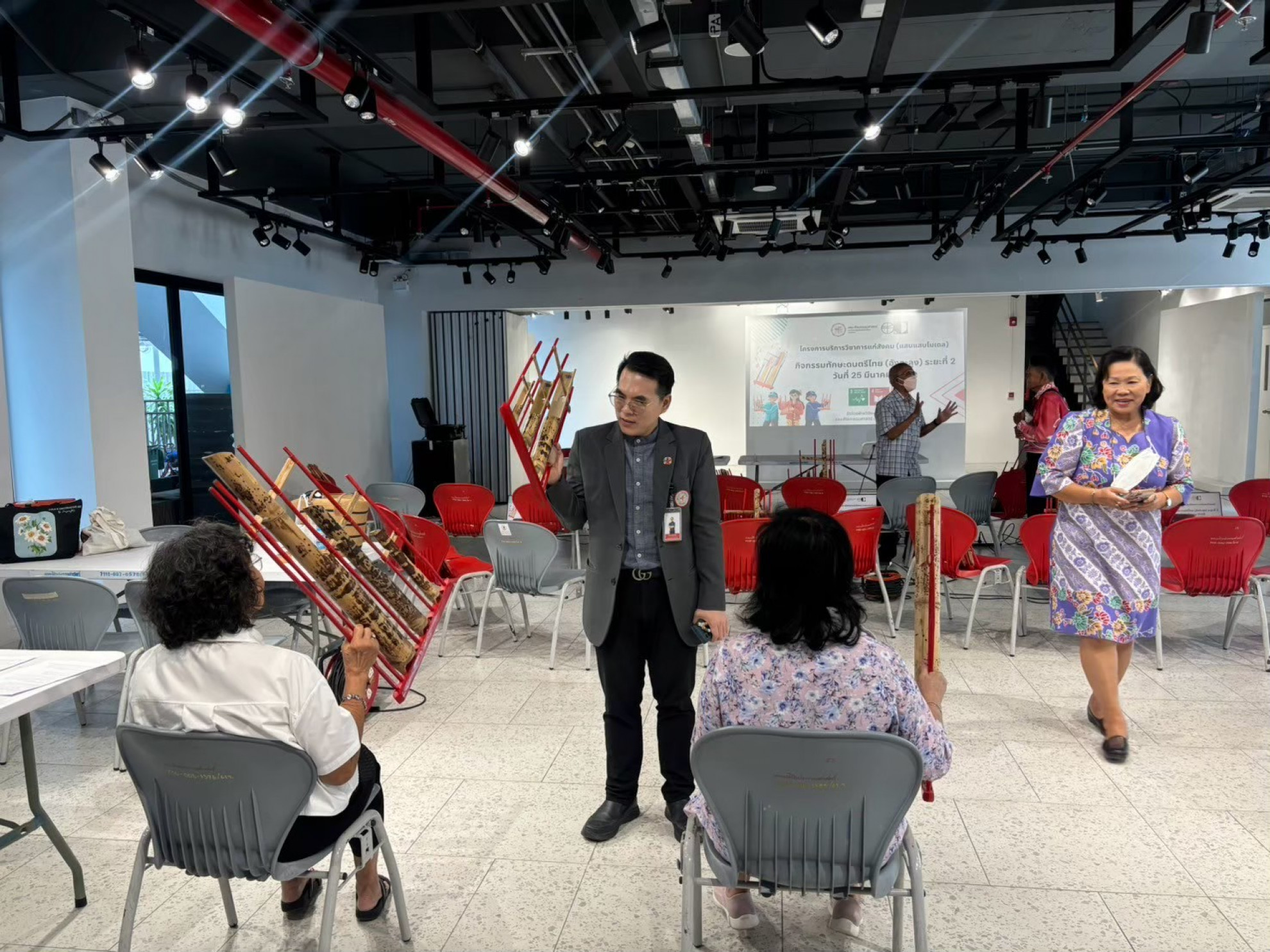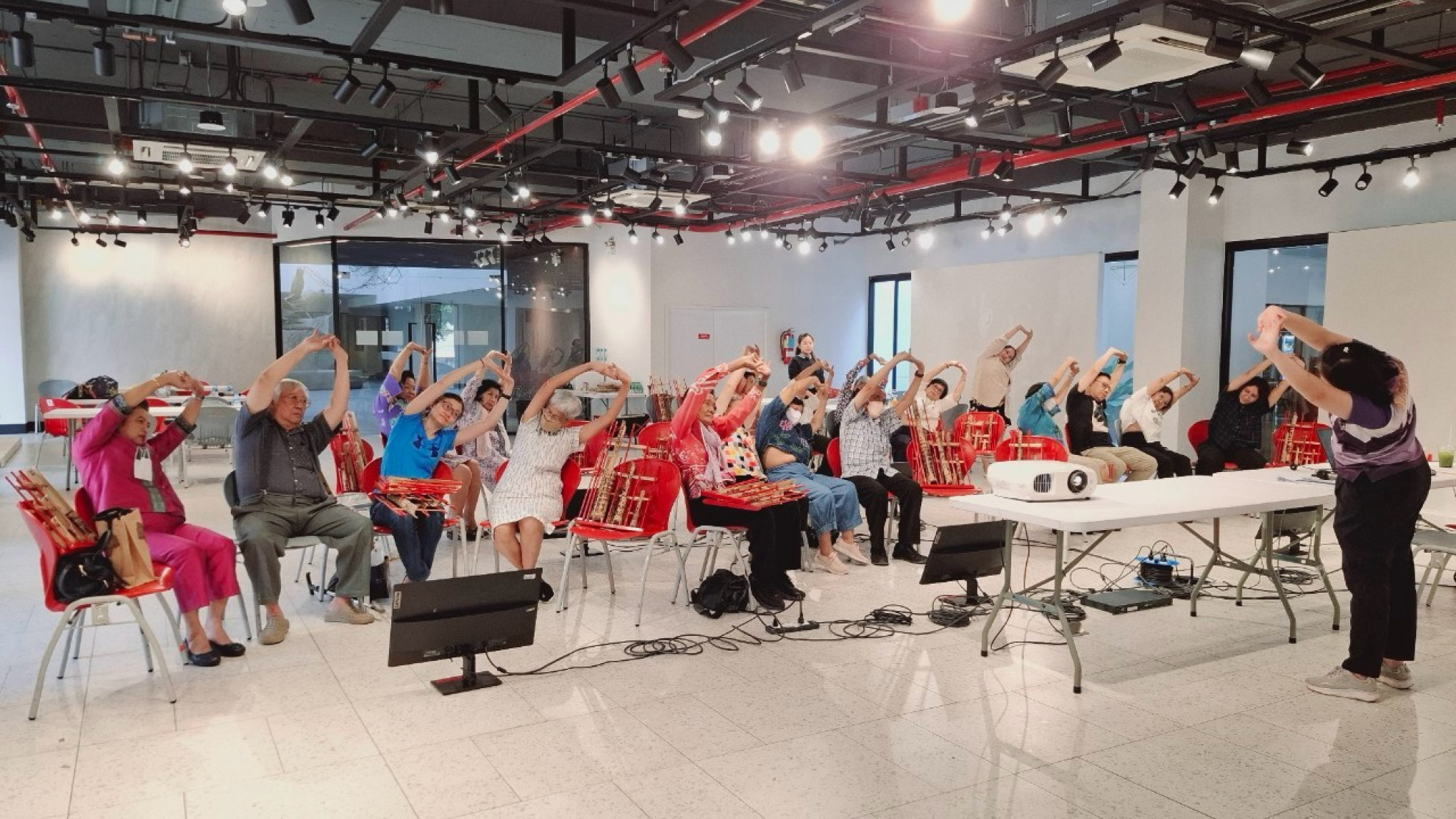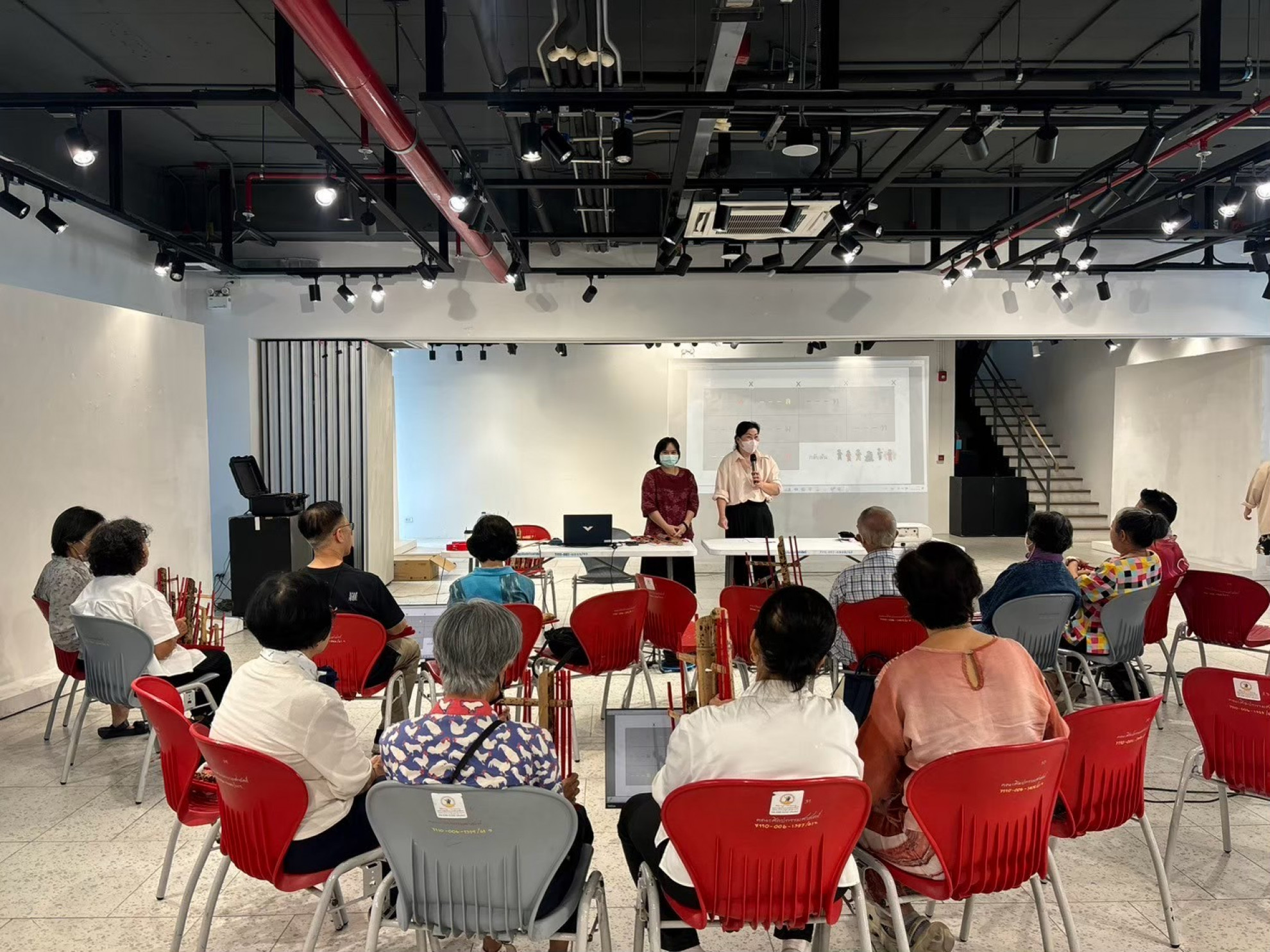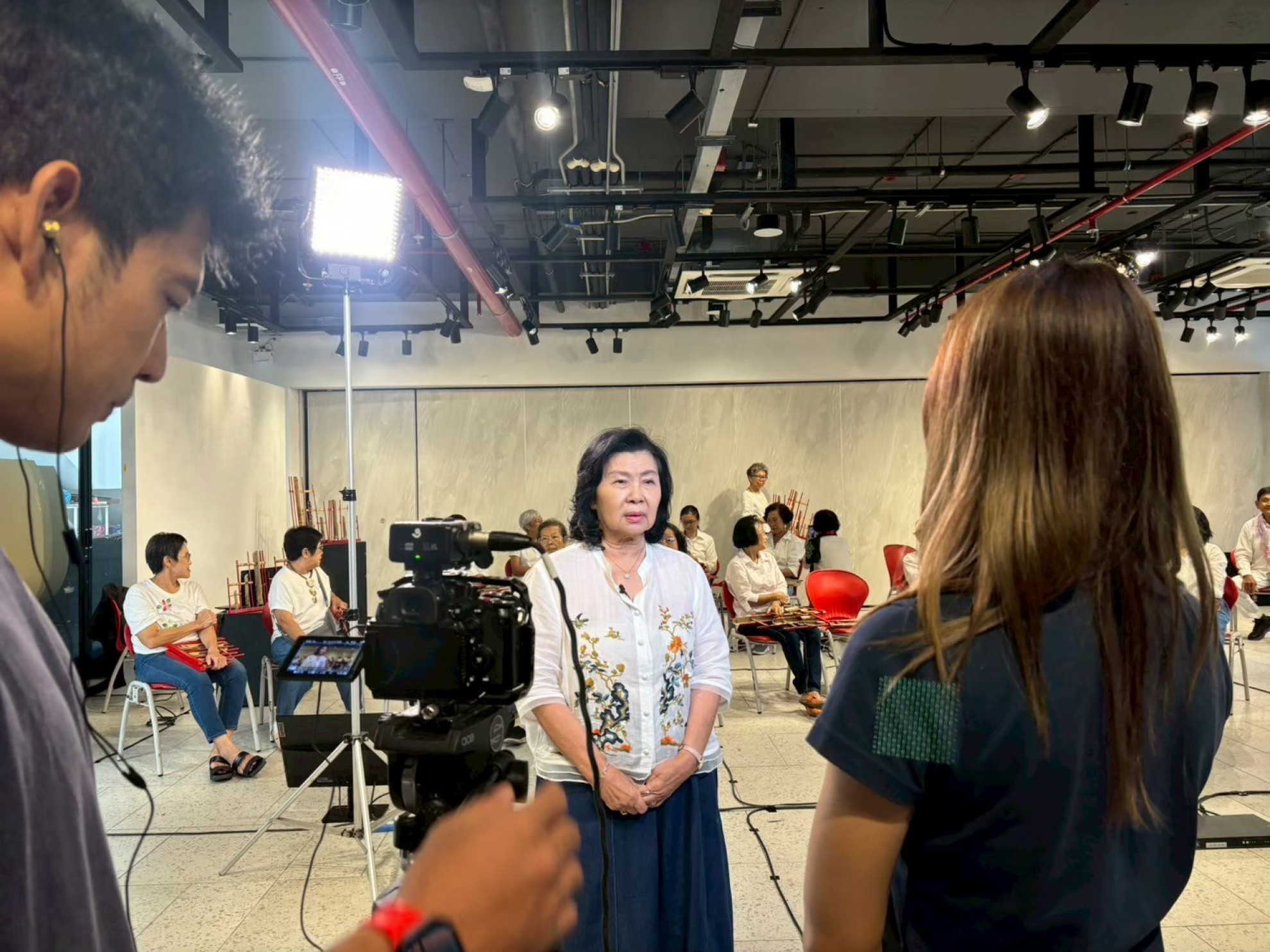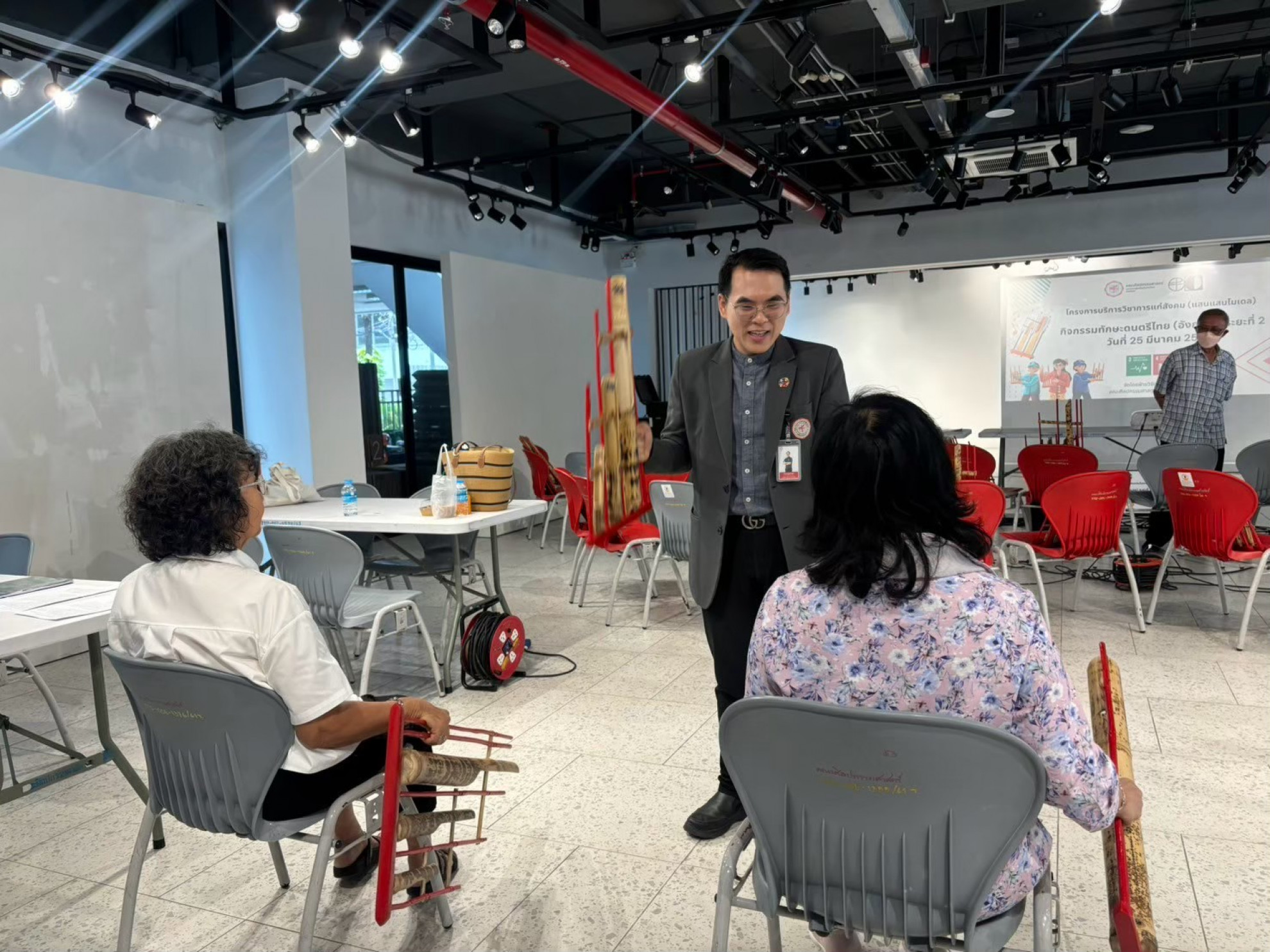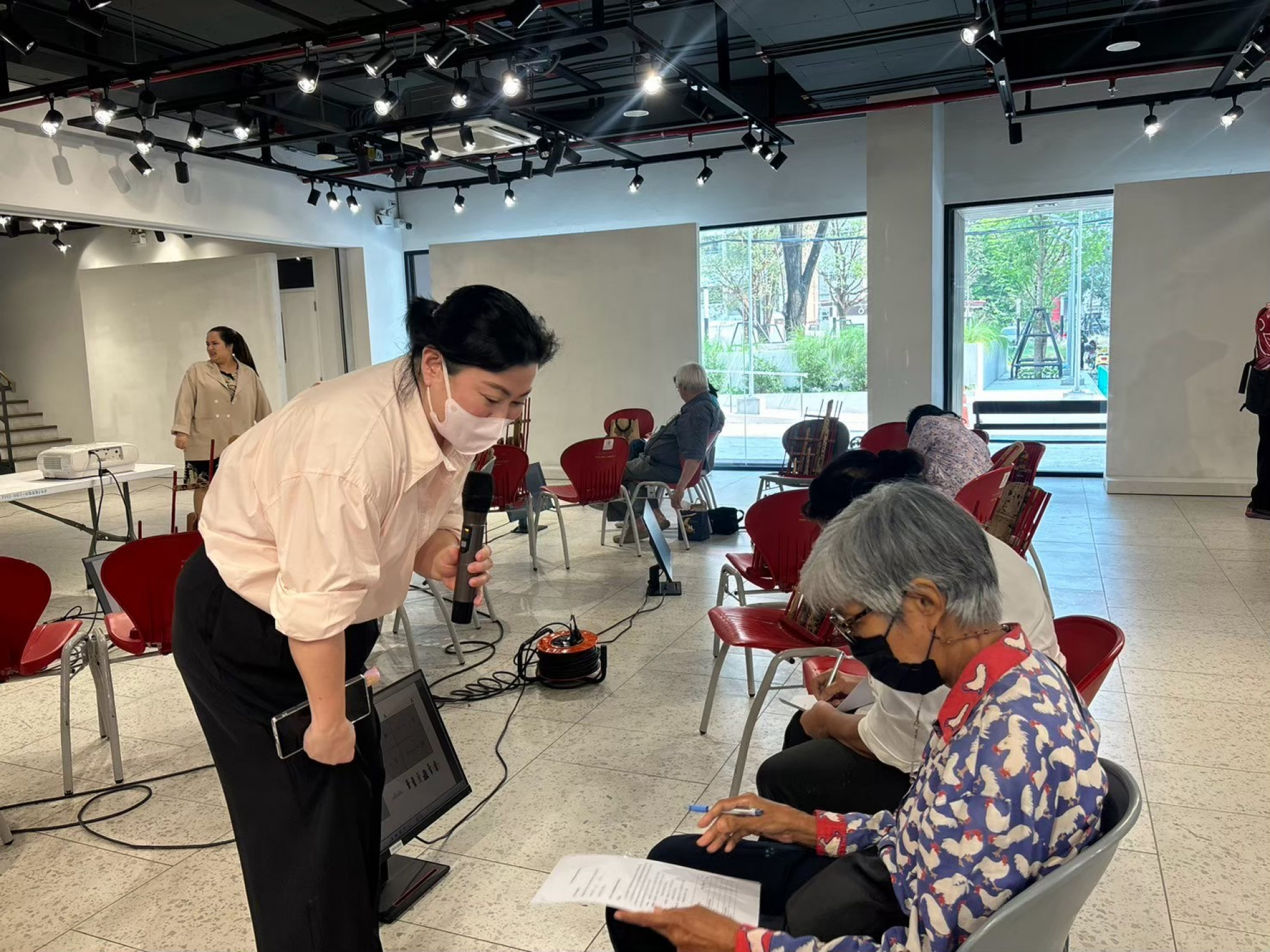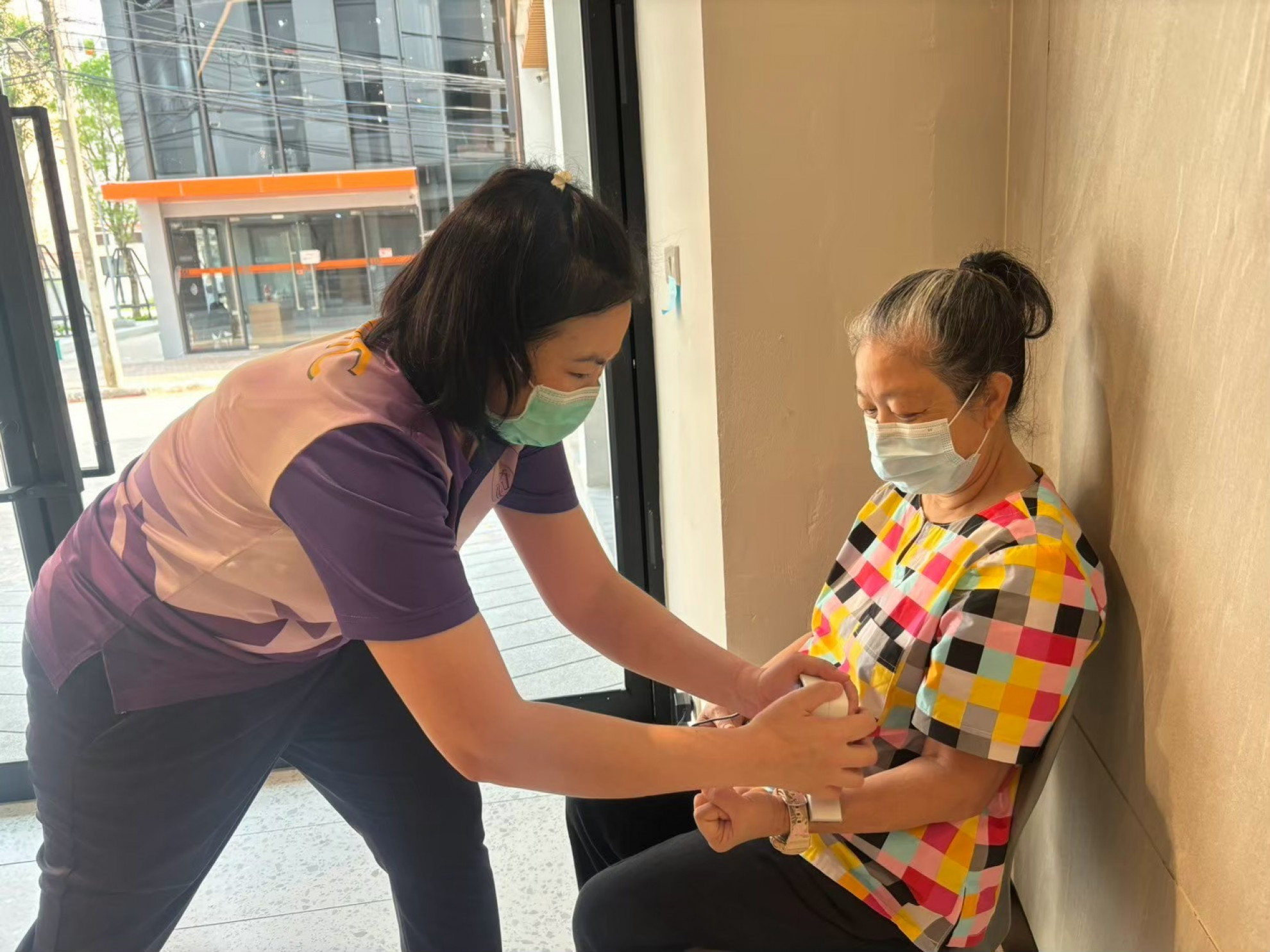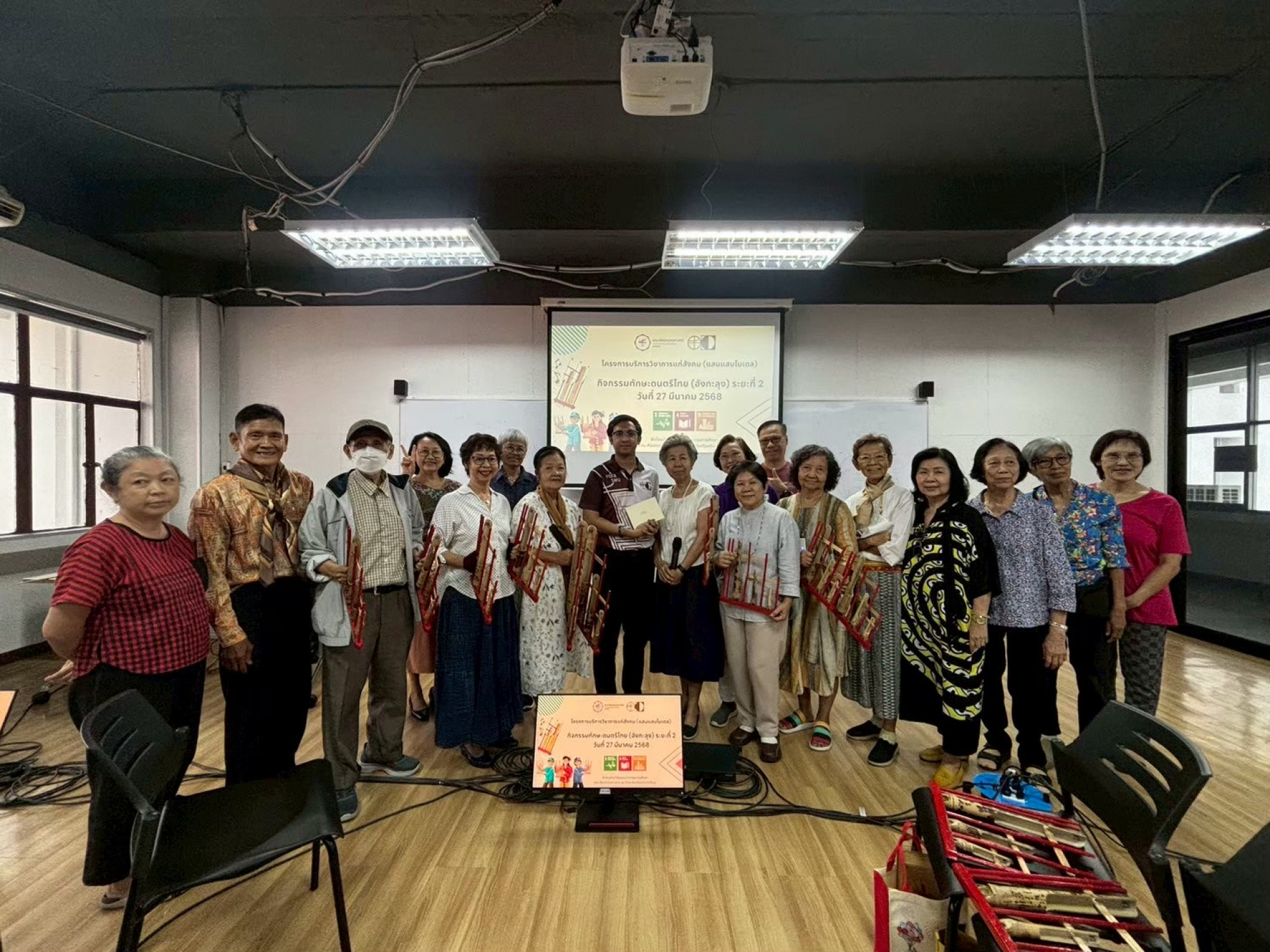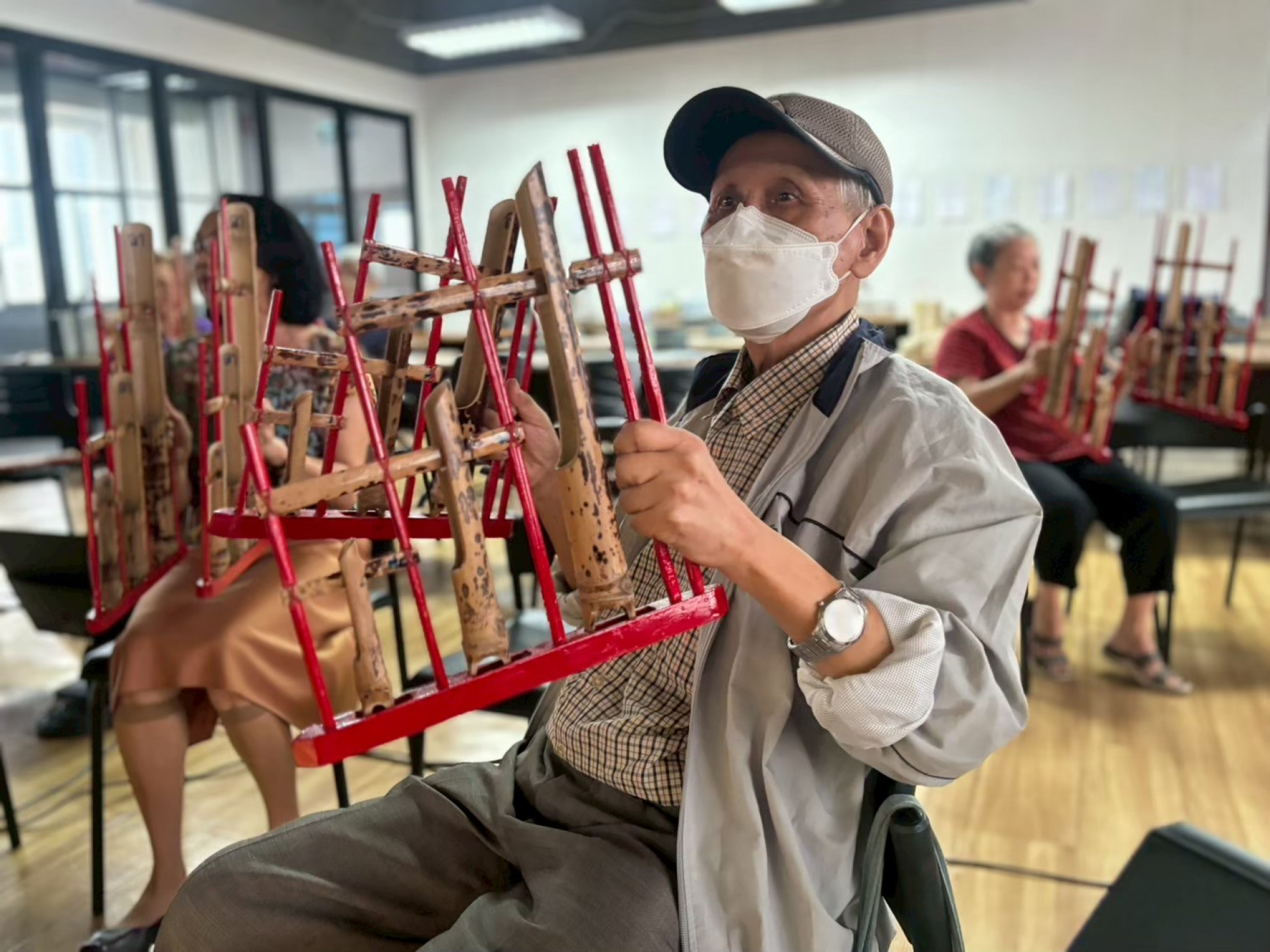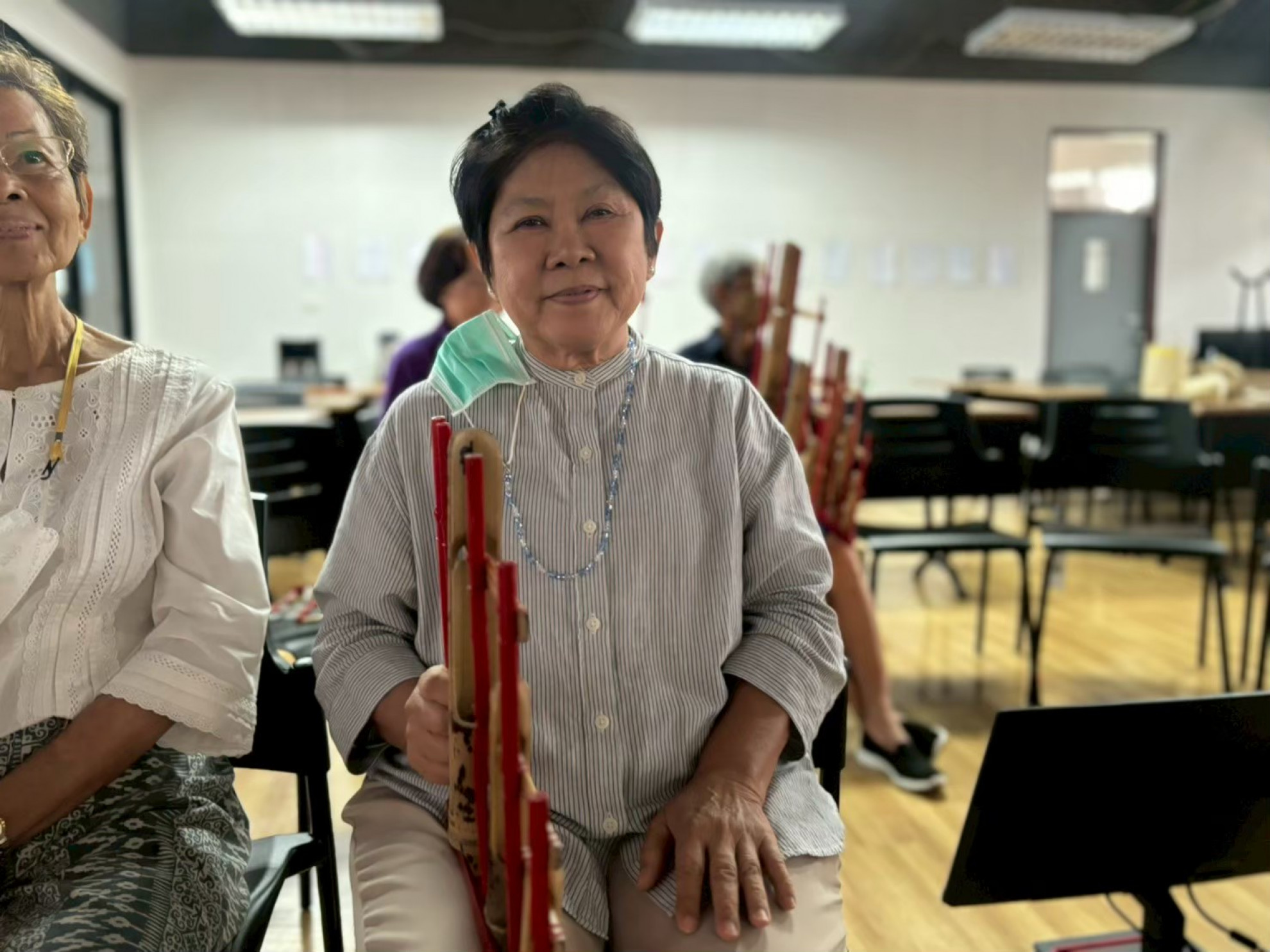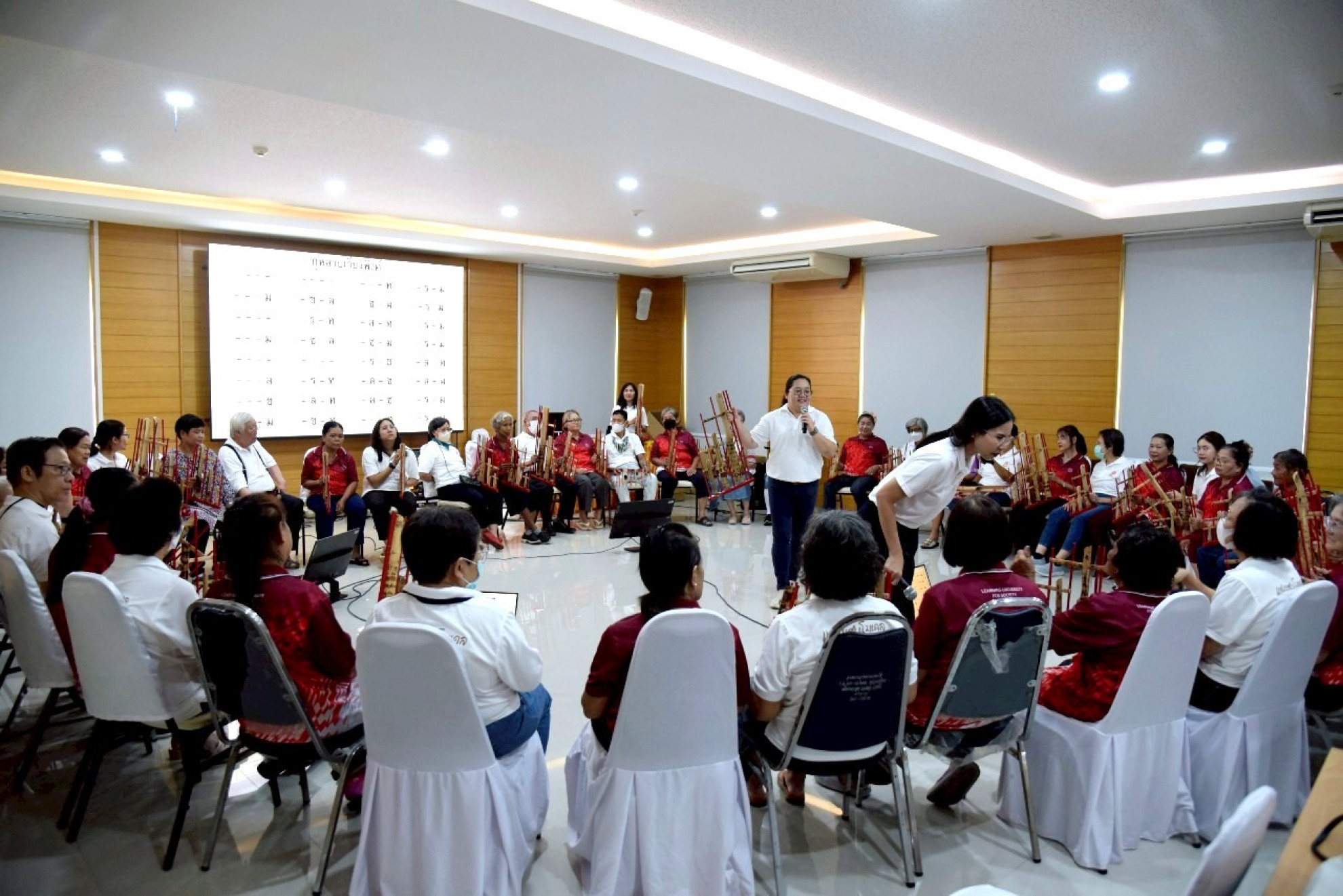





| Target | Indicator | Result |
|---|---|---|

SDG 3
GOOD HEALTH AND WELL-BEING
|
||
| 3.4 By 2030, reduce by one third premature mortality from non-communicable diseases through prevention and treatment and promote mental health and well-being | 3.4.1 Mortality rate attributed to cardiovascular disease, cancer, diabetes or chronic respiratory disease | The project aligns with this indicator by using Thai traditional music and movement-based activities to promote both physical and mental health among the elderly, helping to reduce risk factors for non-communicable diseases (NCDs) such as cardiovascular disease, diabetes, and chronic respiratory conditions. Regular participation in music and movement exercises improves motor skills, enhances circulation, reduces stress, and promotes overall well-being, which can contribute to lowering premature mortality rates from NCDs in the community. |
| 3.8 Achieve universal health coverage, including financial risk protection, access to quality essential health-care services and access to safe, effective, quality and affordable essential medicines and vaccines for all | 3.8.1 Coverage of essential health services (defined as the average coverage of essential services based on tracer interventions that include reproductive, maternal, newborn and child health, infectious diseases, non-communicable diseases and service capacity and access, among the general and the most disadvantaged population) | The project complements this indicator by expanding access to non-clinical but essential health-promoting services for the elderly, particularly those in disadvantaged communities. By integrating cultural activities like angkalung music and traditional performance with health monitoring (such as mental health assessments and muscle function evaluations), the initiative provides a form of community-based health service that supports prevention, early intervention, and well-being. This helps broaden the coverage of essential health services beyond hospitals, ensuring inclusivity and accessibility for vulnerable groups like the elderly. |

SDG 4
QUALITY EDUCATION
|
||
| 4.3 By 2030, ensure equal access for all women and men to affordable and quality technical, vocational and tertiary education, including university | 4.3.1 Participation rate of youth and adults in formal and non-formal education and training in the previous 12 months, by sex | The project supports this indicator by providing non-formal education opportunities for both youth and adults, particularly elderly participants, through workshops in Thai music (angkalung) and traditional performance arts. These activities offer lifelong learning outside the classroom, enabling participants of different ages and genders to acquire new cultural and creative skills. By promoting inclusive access to non-formal education, the project increases community participation rates and fosters intergenerational learning. |
| 4.7 By 2030, ensure that all learners acquire the knowledge and skills needed to promote sustainable development, including, among others, through education for sustainable development and sustainable lifestyles, human rights, gender equality, promotion of a culture of peace and non-violence, global citizenship and appreciation of cultural diversity and of culture's contribution to sustainable development | 4.7.1 Extent to which (i) global citizenship education and (ii) education for sustainable development, including gender equality and human rights, are mainstreamed at all levels in (a) national education policies; (b) curricula; (c) teacher education; and (d) student assessment | The project aligns with this indicator by embedding principles of sustainable development and cultural preservation into its activities, which not only promote artistic skills but also encourage values of inclusion, well-being, and respect for cultural diversity. Through music and performing arts education integrated with health promotion, participants learn about sustainable lifestyles, community cooperation, and cultural heritage conservation. This approach reflects elements of education for sustainable development and global citizenship education, as it nurtures social responsibility, equality, and the transmission of cultural knowledge within the educational framework. |

SDG 10
REDUCED INEQUALITIES
|
||
| 10.2 By 2030, empower and promote the social, economic and political inclusion of all, irrespective of age, sex, disability, race, ethnicity, origin, religion or economic or other status | 10.2.1 Proportion of people living below 50 per cent of median income, by sex, age and persons with disabilities | The project aligns with 10.2.1 Proportion of people living below 50 per cent of median income, by sex, age and persons with disabilities by creating inclusive opportunities for older adults and community members, regardless of their income status, gender, or physical limitations, to engage in meaningful cultural and educational activities. By offering free access to music and performance workshops, the project helps reduce social and cultural exclusion often faced by vulnerable groups. It enhances their skills, self-confidence, and community engagement, which can lead to better well-being, social recognition, and even potential income-generating opportunities. In this way, the project contributes to reducing inequalities and fostering social inclusion for disadvantaged populations. |

SDG 11
SUSTAINABLE CITIES AND COMMUNITIES
|
||
| 11.4 Strengthen efforts to protect and safeguard the world's cultural and natural heritage | 11.4.1 Total expenditure (public and private) per capita spent on the preservation, protection and conservation of all cultural and natural heritage, by type of heritage (cultural, natural, mixed and World Heritage Centre designation), level of government (national, regional and local/municipal), type of expenditure (operating expenditure/investment) and type of private funding (donations in kind, private non-profit sector and sponsorship) | The project aligns with 11.4.1 Total expenditure (public and private) per capita spent on the preservation, protection and conservation of all cultural and natural heritage by channeling resources—both financial and non-financial—into the preservation and revitalization of Thai cultural heritage such as Angklung music and traditional performing arts. Through investment from the university, local networks, and community partnerships, the program not only sustains cultural practices but also creates platforms for intergenerational knowledge transfer. This reflects expenditure in terms of operating costs for workshops, performances, and community engagement, as well as in-kind contributions from artists and educators. By integrating academic, cultural, and community efforts, the project enhances the protection and promotion of cultural heritage in a sustainable and measurable way. |
The Community Academic Service Project (Saensaeb Model) – Phase 2: Music for Happiness and Performing Arts to Enhance Cultural Spaces is designed to promote both physical and mental health among the elderly through Thai traditional music, particularly the angkalung. The project integrates health and cultural dimensions by assessing participants’ mental well-being and physical condition before and after the activities, showing how music can stimulate cognitive function, reduce stress, and encourage body movement. At the same time, it provides opportunities for elderly participants to showcase their performances publicly, fostering intergenerational learning as students and the wider community engage with Thai cultural heritage. This initiative aligns with the SDGs by supporting SDG 3 (Good Health and Well-being) through preventive health promotion and mental health support, SDG 4 (Quality Education) by equipping participants with new creative and cultural skills, SDG 10 (Reduced Inequality) by empowering the elderly as active contributors to society regardless of age, and SDG 11 (Sustainable Cities and Communities) by preserving and revitalizing cultural heritage. Moreover, it reflects interdisciplinary integration between the humanities (music, performing arts) and health sciences, while being informed by research on the role of music in delaying cognitive decline, thus positioning cultural practices as a sustainable tool for lifelong well-being and community development.
The Community Academic Service Project: “Music for Happiness and Performing Arts to Enhance Cultural Spaces – Phase 2” has generated significant positive impacts at multiple levels. At the community level, it has improved the physical and mental well-being of elderly participants living along Khlong Saensaeb by engaging them in angkalung Thai music and movement activities. These initiatives reduce the risks of non-communicable diseases, promote healthy aging, and create cultural spaces where the elderly and the community can actively participate, fostering pride in Thai cultural heritage and strengthening networks for intergenerational transmission of traditions. At the university level, the project reinforces Srinakharinwirot University’s mission in academic service by integrating knowledge from the arts and health sciences to serve society. It enhances the institution’s credibility and role as a “knowledge provider,” while offering students and faculty experiential opportunities to apply academic knowledge in real-world cultural and social contexts. At the national level, the project contributes to safeguarding Thai cultural heritage such as angkalung music and traditional dance, while simultaneously promoting elderly health, thereby reducing long-term public health burdens. It also serves as a model of how art and culture can be harnessed as tools for improving quality of life and can be scaled across the country.
Furthermore, the project is integrated into teaching and learning through courses such as CDM223 Thai Drama and Performance Tradition and MSE437 Music for Ceremony, allowing students to gain experiential learning, develop community collaboration skills, and translate classroom knowledge into professional practice. It is also linked to research, particularly in developing music programs to mitigate mild cognitive impairment among at-risk elderly populations, providing empirical evidence of music’s benefits on health and creating a foundation for future studies. Finally, the project exemplifies interdisciplinary collaboration by merging the humanities (performing arts, music, dance) with health sciences (basic medicine and health sciences), resulting in initiatives that simultaneously promote well-being and preserve Thai cultural heritage.
This multidimensional approach reflects strong alignment with the Sustainable Development Goals (SDGs), particularly SDG 3 (Good Health and Well-being) through mental and physical health promotion, SDG 4 (Quality Education) by integrating experiential learning and skill development, SDG 10 (Reduced Inequalities) by empowering the elderly as active participants in society, and SDG 11 (Sustainable Cities and Communities) through the protection and revitalization of cultural heritage. It thus represents a holistic model of sustainable community and cultural development.
